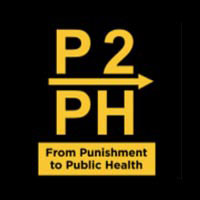Punishment to Public Health Conference
On June 8th and 9th I attended the Punishment to Public Health (P2PH) Conference, a collaboration between John Jay College and the NYC Department of Health. The purpose of the conference was to look at what has been done for people incarcerated on Rikers Island who have mental health issues.
After a healthy breakfast and some networking, the conference began with keynote speaker Kirk James, Clinical Assistant Professor at NYU Silver School of Social Work. Mr. James stressed the conference's goal of community education. He emphasized that inmates with mental health problems should be a priority, and that we were there to discuss what works and what doesn’t when it comes to supporting this group of people. Below is a summary of some of what I learned at the conference.
In the 1960's and 1970's, evidence began to emerge in Canada about what approaches to mental health actually seemed to work. They identified various effective treatments and learned that the process of rehabilitation seemed to help those struggling with mental health.
It is important that we advocate for the education of judges, district attorneys, justice systems and criminal agencies nationwide on how to approach cases where the client has mental health problems, because these kinds of cases require unique, humane treatment. Furthermore, we need to be able to provide services for inmates who suffer from mental health problems.
It’s also important for the courts to be able to recognize people who have mental health issues when they enter into the system. For that reason, the courts should implement assessment tools that examine drug use, employment, criminal behavior, lifestyle, risk level, dynamic needs, clinical destabilizers and lifestyle destabilizers to determine mental health status.
Above all, we need to treat people in the criminal justice system with respect. That means that probation should focus on restoring people’s humanity. It means that we should avoid the term ‘defendants’ and use ‘clients’ instead. It means that when we work with clients we should make an effort to get to know their community, their friends and their family.
When we talk about mental health it’s important to talk about who is impacted. Most often, black and Latino populations suffer more than others because they have less access to support and resources. Black communities especially have been criminalized in the U.S. throughout their history in this country.
In 1789, the 13th Amendment outlawed slavery ‘except as punishment for crime’. The amendment freed slaves, but from then on, black Americans were systematically criminalized under Jim Crow and penal systems that treated blacks more harshly than whites. Effectively, this meant that many were returned to conditions of slavery, because once they were convicted of crimes they could be legally forced to work. In the present day we can observe the way that black Americans were systematically swept into prisons by ‘hard on crime’ rhetoric of the Reagan and Bush administrations that advocated for more prison and harsher sentences. This history stacks the deck against poor black communities.
The facts about mental health at Rikers Island today are stark. 80% of people incarcerated at Rikers have mental health problems. 40% have severe mental health problems and 20% have minor mental health problems. In light of these facts, it is paramount that the corrections officers at Rikers be trained to interact with inmates with mental health issues. It’s important to spread awareness that mental health and violence are not inherently connected. Most people with mental illness are not violent. They deserve humane treatment, recognition of their conditions and proper support.
To learn more about the P2PH Conference, visit the site at: http://www.jjay.cuny.edu/p2ph-conferences

Comments